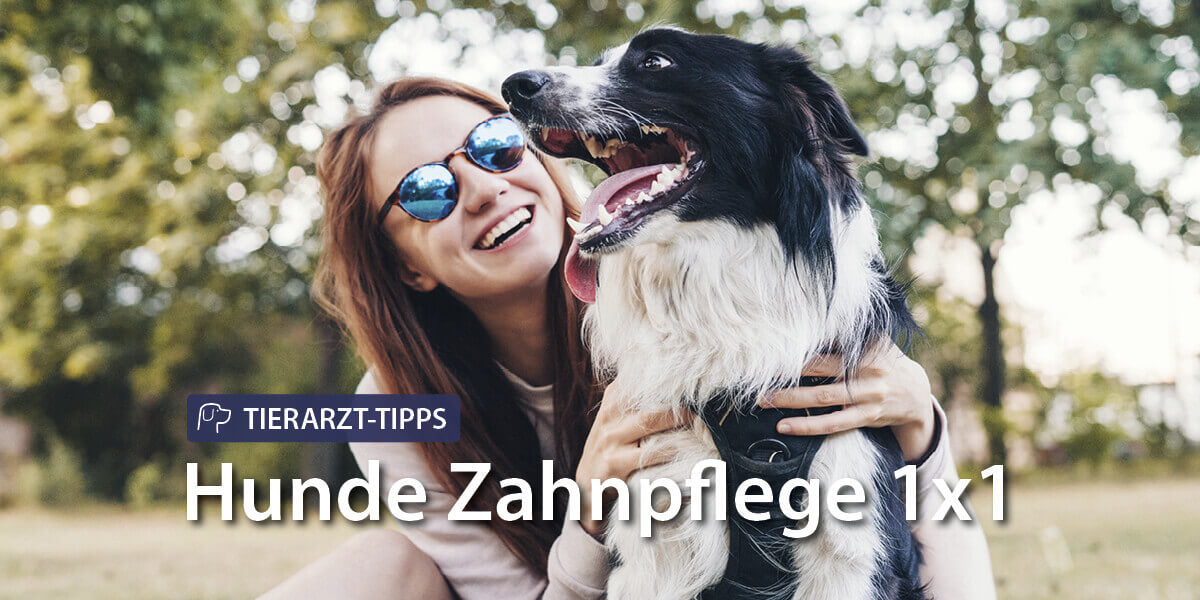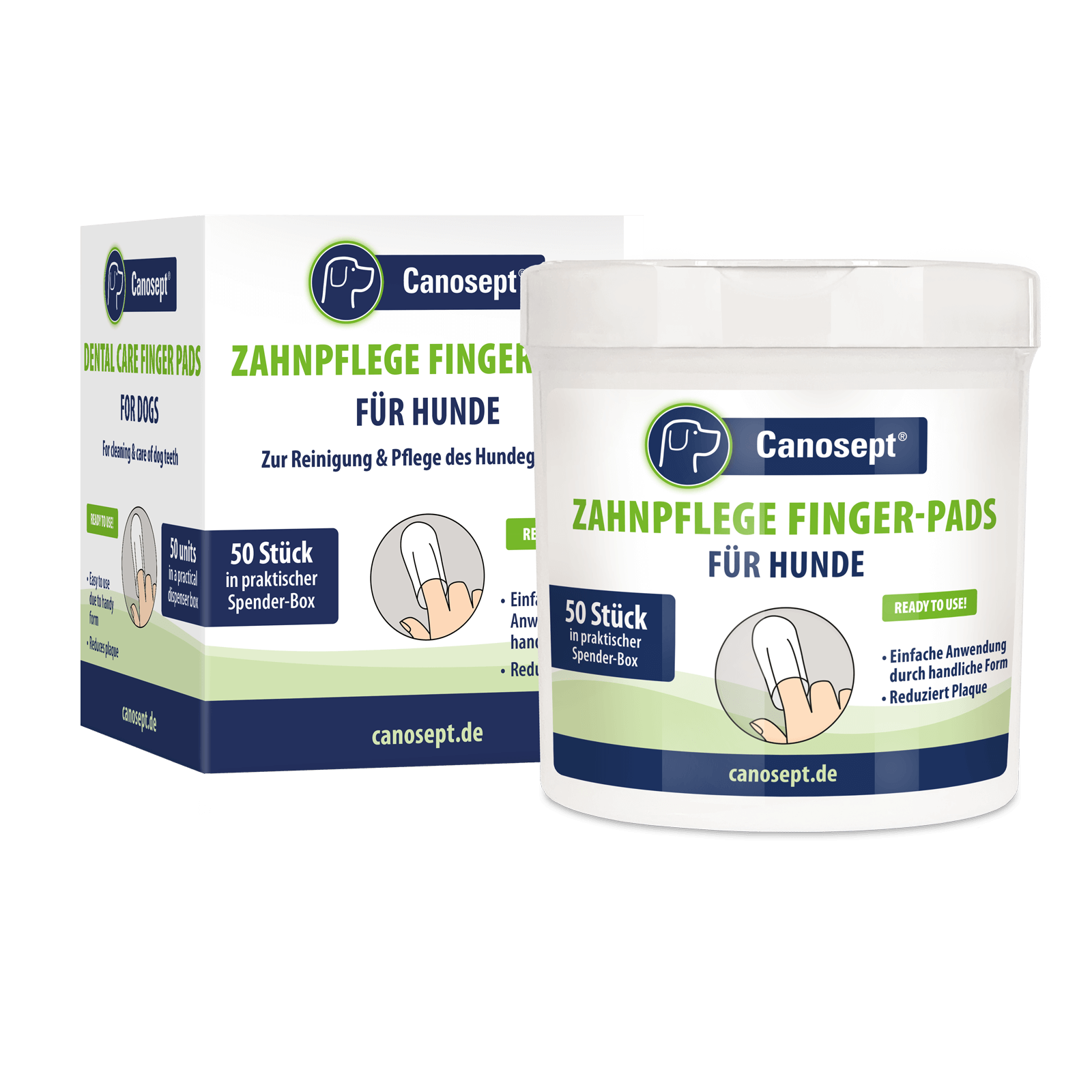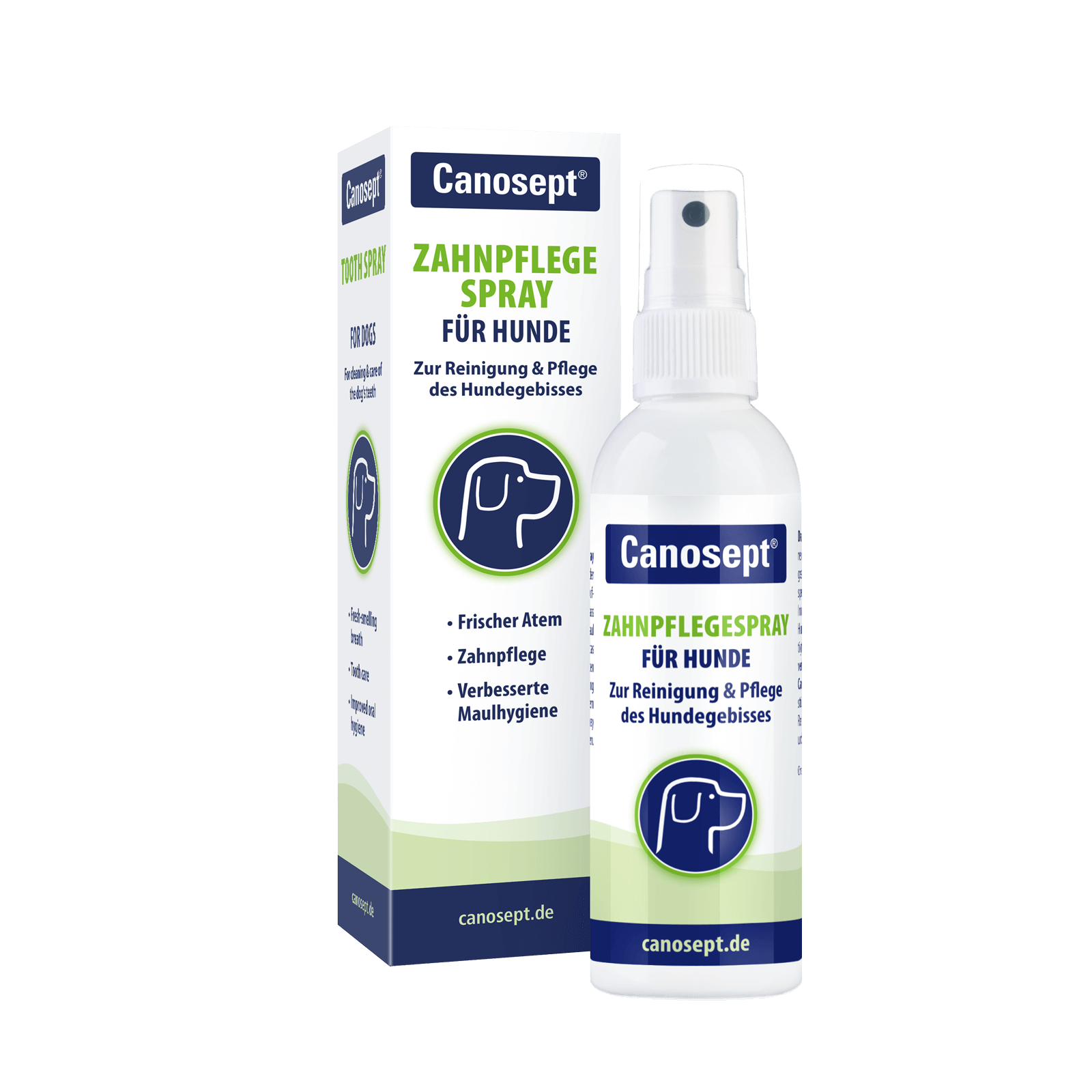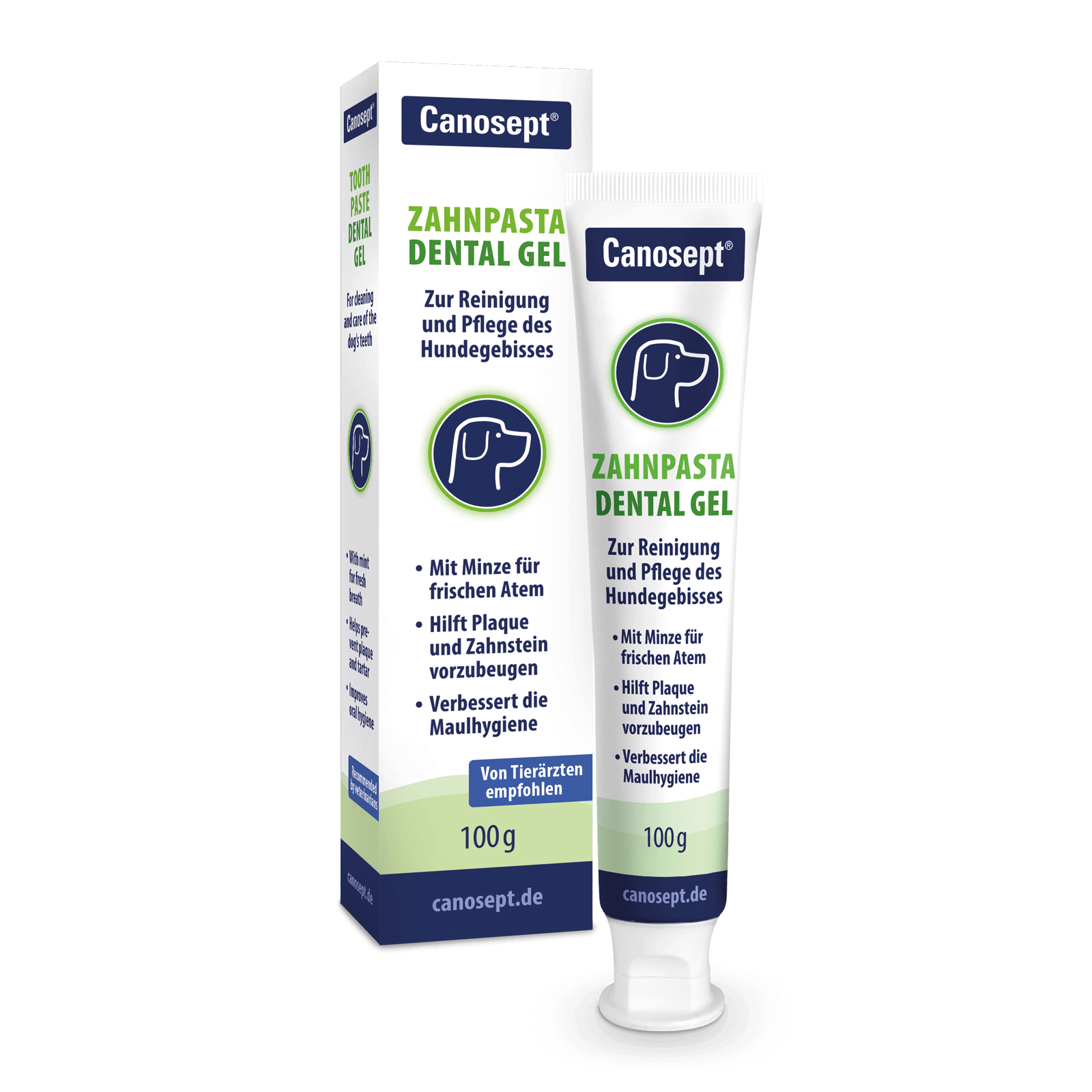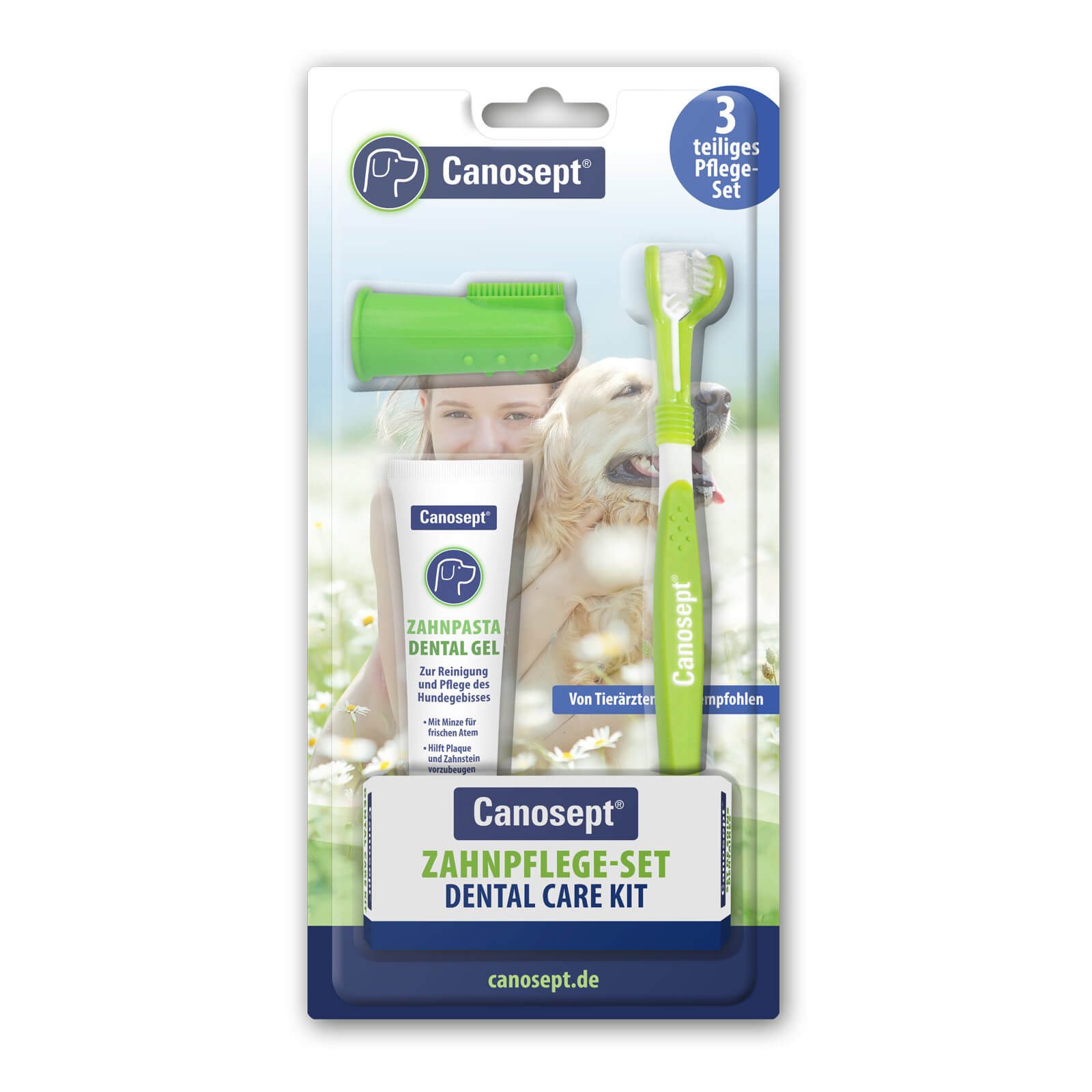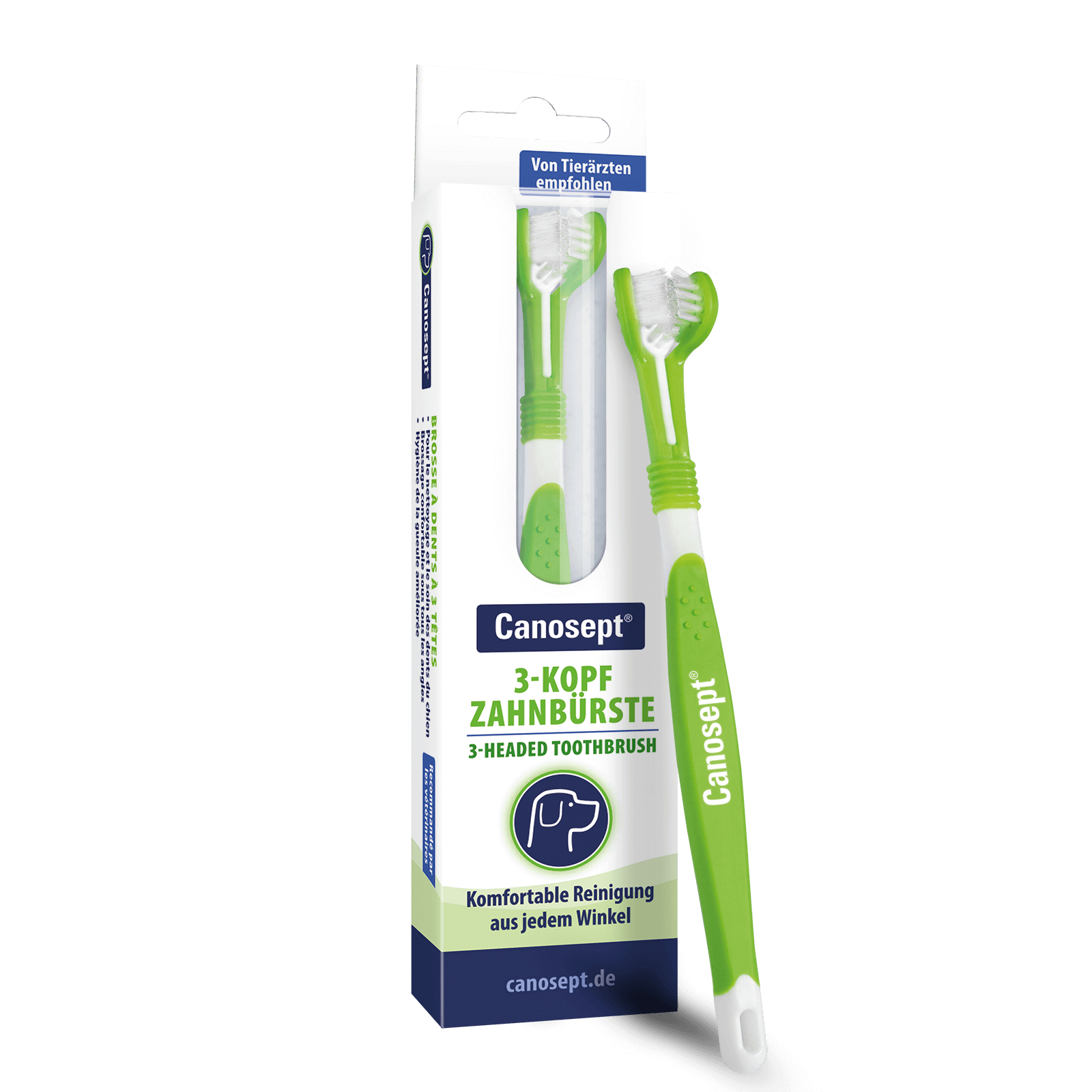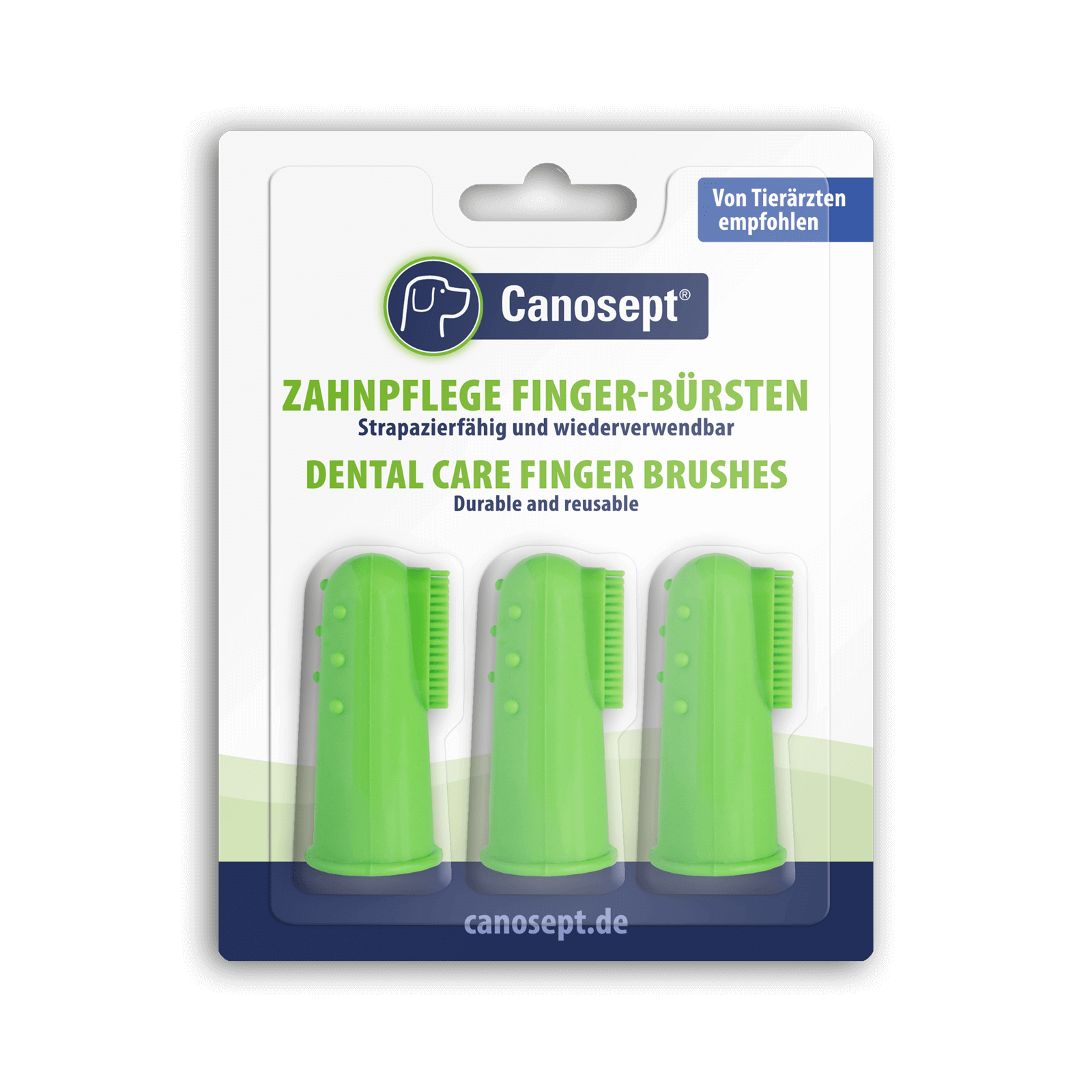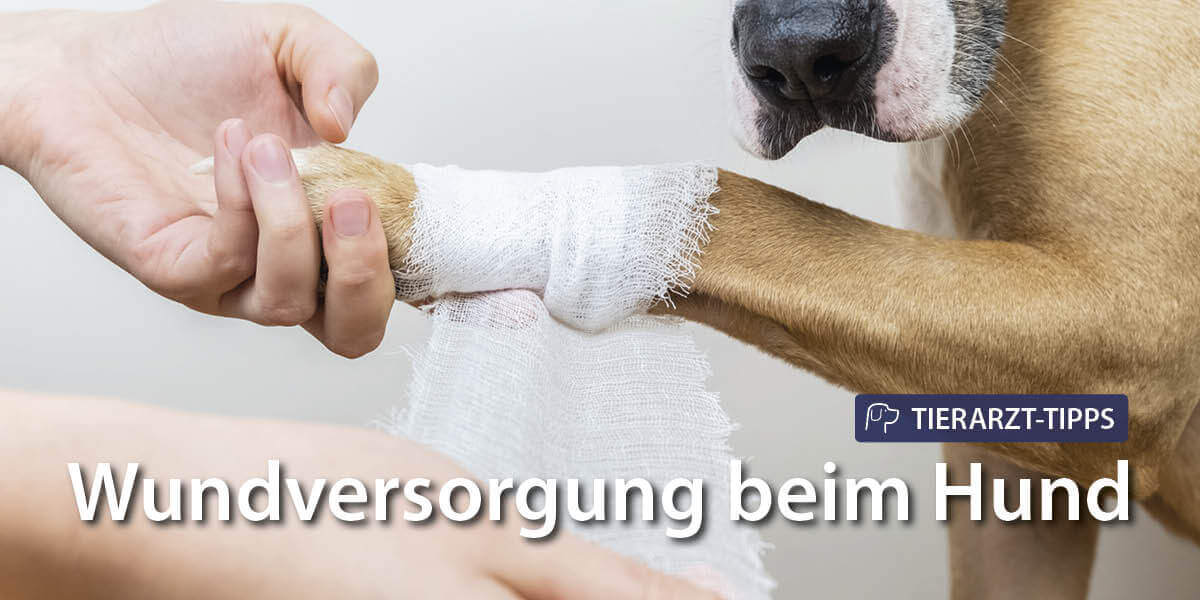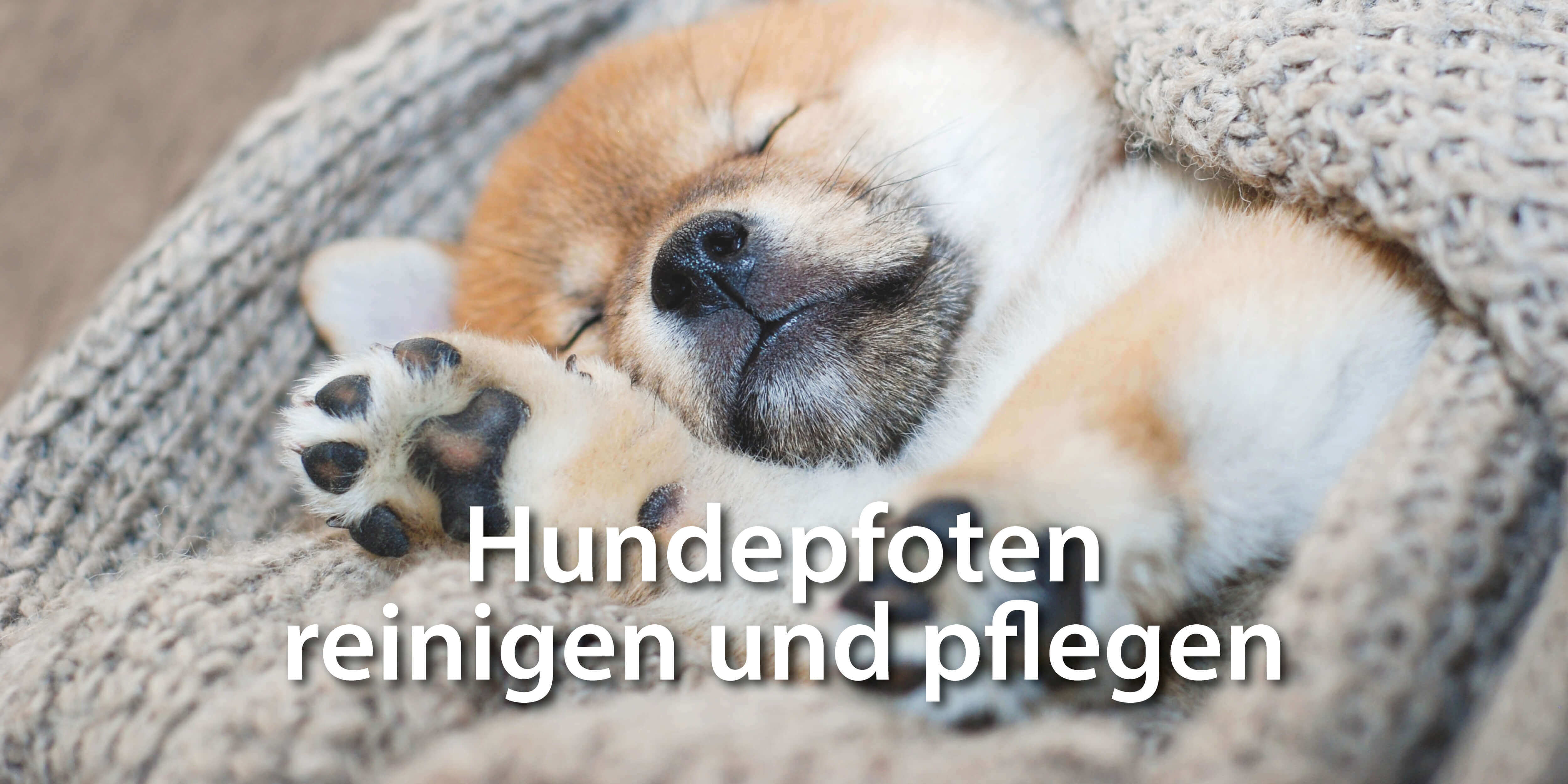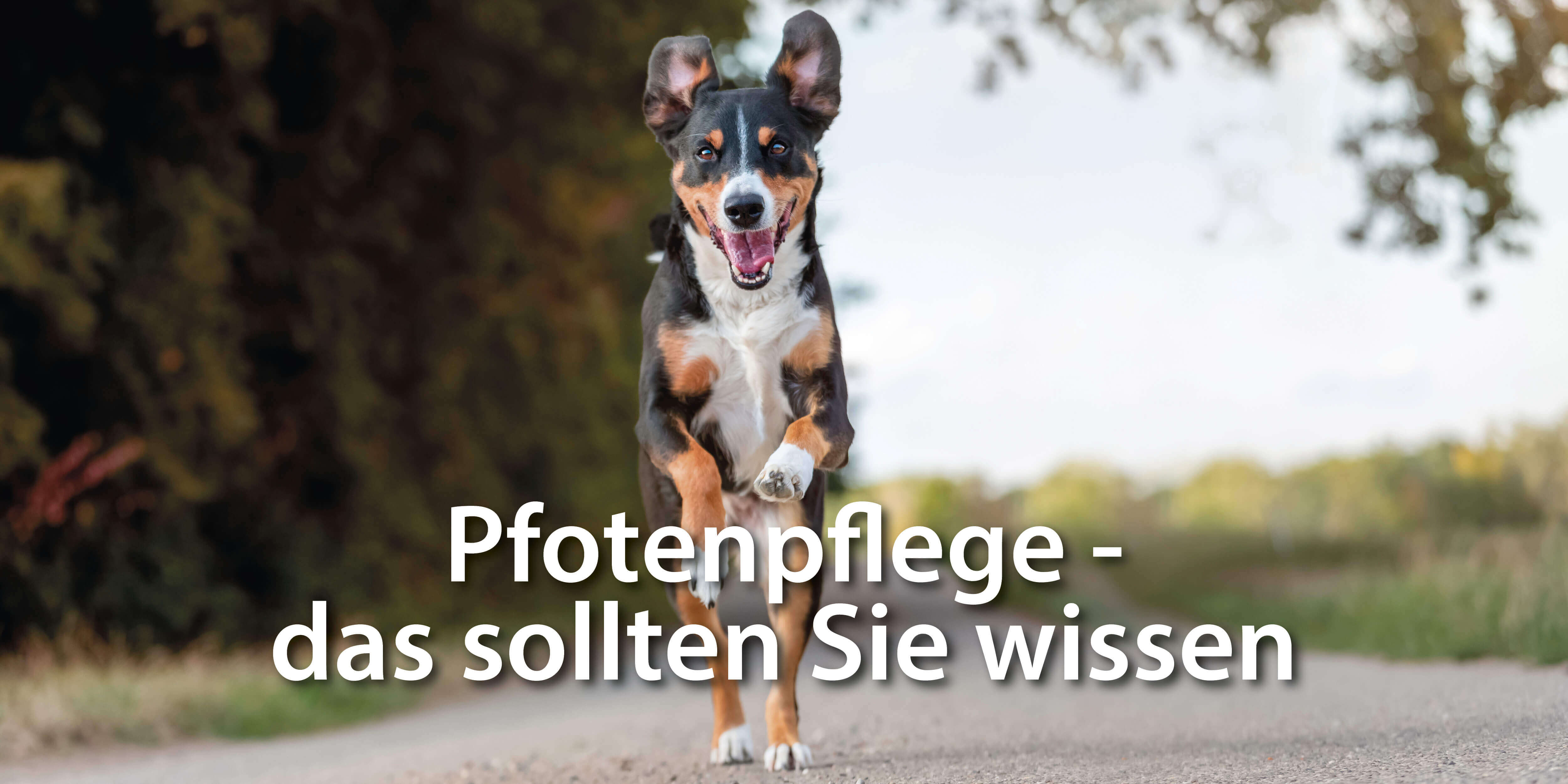- Why should I brush my dog's teeth?
- Different breeds, different needs in dog dental care
- How often do I need to brush my dog's teeth?
- Which toothpaste for my dog
- Why is chewing important
- Buying tip from the vet

Why should I brush my dog's teeth?
"My dog gets raw bones regularly—that's enough. After all, wolves didn't have peppermint drops either." Many dog parents think that dog dental care with dental sticks and raw bones is sufficient.
Fortunately, there are many more options available today for maintaining oral and dental health. According to a study, 80% of all dogs over the age of three have dental problems, such as tartar or gingivitis. Regular dental care will ensure your dog's health well into old age, as underlying dental diseases and inflammation can also negatively impact other organs in the body.

Different breeds, different needs in dog dental care
According to the FCI, there are currently 356 recognized dog breeds. Different breeds also have different needs when it comes to dog dental care. This is due to changes in the dog's mouth, such as a shortened muzzle and changes in the teeth.
It's especially important to note that short-nosed breeds tend to be more prone to dental problems due to the narrow jaw/teeth. However, not every dog is the same. Even two dogs from the same litter can have completely different dental care needs. Therefore, a daily mouth check for your dog is the best preventative measure.

How often do I need to brush my dog's teeth?
When it comes to dog dental care, regularity is key. Sporadic use of dental brushing utensils is not enough to care for and protect your dog's teeth.
Our veterinarian recommends making dog dental care a regular part of your daily routine. This is the most effective way to promote oral and dental health. Ideally, you should introduce dental care every day, for example, as part of your evening routine after your dog's last feeding. This way, it becomes a regular part of your dog's daily routine.
Is there absolutely no time for that? Since plaque begins to harden into tartar after about three days, we recommend brushing your dog's teeth at least three times a week.
Can I brush my dog's teeth with toothpaste?
When it comes to dog dental care, you can use special toothpastes for dogs. Human toothpaste is not suitable for dogs due to its ingredients (e.g., fluoride, xylitol).
Canosept offers Canosept Toothpaste Dental Gel , specially formulated for dogs. It cleans dog teeth without added sugar, fluoride, or xylitol and has a delicate mint flavor that dogs also enjoy.
Dog Dental Care – What is Best for Dog Teeth?
In addition to regular brushing, chewing plays an important role in dog dental care.

Why is chewing important for dental care?
You've probably experienced this yourself: Your dog has found a stick in the woods and is chewing on it with relish. The chewing instinct in dogs is innate and should always be satisfied.
Chewing makes you happy
Bones, horns, and the like not only taste delicious to dogs, but also offer many benefits. Among other things, endorphins are released when chewing. These feel-good hormones boost mood. Chewing makes your dog happy.
Additionally, chewing helps your dog relax in stressful situations. The constant movement of the jaw muscles during biting and chewing relieves tension.

Chewing supports the change of teeth
The fact that chewing is innate becomes apparent in the first few months of life. Between the fourth and seventh months, dogs begin to shed their teeth. During this time, the gums can quickly become inflamed, and the mouth can become itchy.
Chewing accelerates the eruption of teeth and supports the change of teeth.
Chewing for dogs dental care
Chewing is an essential part of a dog's dental care. It ensures good blood circulation to the gums. Chewing also rubs off food debris. This makes it harder for plaque, such as tartar, to build up on the teeth. Furthermore, the increased saliva production during chewing reduces the risk of tooth decay.
When choosing bones, our veterinarian has a few helpful tips for healthy chewing fun.

Which bones for dental care?
Bones you want to use for dog dental care should meet certain characteristics. Bones, horns, and the like for dogs should be as natural and sugar-free as possible. They should also be free of colorings, flavorings, and preservatives. Certain materials can be too hard for dogs and lead to microcracks in the tooth enamel, so we particularly advise against using deer antlers, for example.
Sticks, chicken and pork – don’t do that
It's best not to give your dog chicken or pork bones for dental care. The risk of injury from splinters is too high. Sticks from the forest are also not recommended for dogs for this reason and are not considered dental care.
Dog dental care – How do I clean my dog’s teeth?
Your dog's teeth require regular care. The Canosept range offers the right dog dental care product for every breed, every age, and every situation.
Buying tip from the vet!
With the practical Canosept dental care set and the included Canosept 3-head toothbrush, you can easily reach even the most difficult areas of the mouth and significantly reduce brushing time. You can find more information about the products here:
In addition to regular dental care with a toothbrush, the Canosept dental care spray and theCanosept dental care finger pads are a great way to combat bad breath in dogs – for quick dental care in between and immediate fresh breath for your dog.

